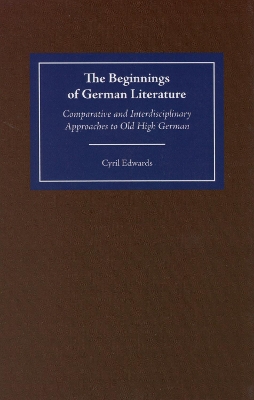For the German-speaking peoples under the Carolingians (c. AD 750-950), the dominant literary tongue was Latin, the lingua franca of the Christian West. Before the eighth century only isolated words, legal terms, and proper namesfrom the vernacular dialects had found their way into manuscripts. Cyril Edwards's collection of essays examines the breakthrough into literacy of the dialects known collectively as Old High German in the south and Old Saxon in the north. In an introductory essay, Edwards surveys the recording and survival of the earliest continuous German texts. This leads into seven essays, each inspired by a fresh look at the manuscripts. Two are concerned with the Wessobrunn Prayer, the earliest religious poem in German. A third looks at the destructive application of acids to medieval manuscripts in an attempt to read barely legible letters; it concentrates upon the Hildebrandslied, theonly surviving Old High German heroic lay, and the ninth-century eschatalogical poem, the Muspilli. Two studies are devoted to the Merseburg Charms, pagan survivals in a Christian manuscript, invoking gods familiar from the Old Norse pantheon. A study of the earliest traces of the love-lyric follows, poems that slipped through the net of censorship imposed by the Christian church. A final essay is concerned with the Ossian of the period, an ingenious forgery that was a cause celebre in the nineteenth century, the Old High German Lullaby.
Cyril Edwards is a Lecturer in German at St. Peter's College, Oxford, and an Honorary Research Fellow of University College London. He has published numerous articles on medieval German literature and co-edited a book on the medieval German lyric. He is currecntly preparing a new translation of Wolfram von Eschenbach's Parzival and Titurel.
- ISBN10 157113235X
- ISBN13 9781571132352
- Publish Date 15 July 2002
- Publish Status Active
- Publish Country US
- Publisher Boydell & Brewer Ltd
- Imprint Camden House Inc
- Format Hardcover
- Pages 215
- Language English
